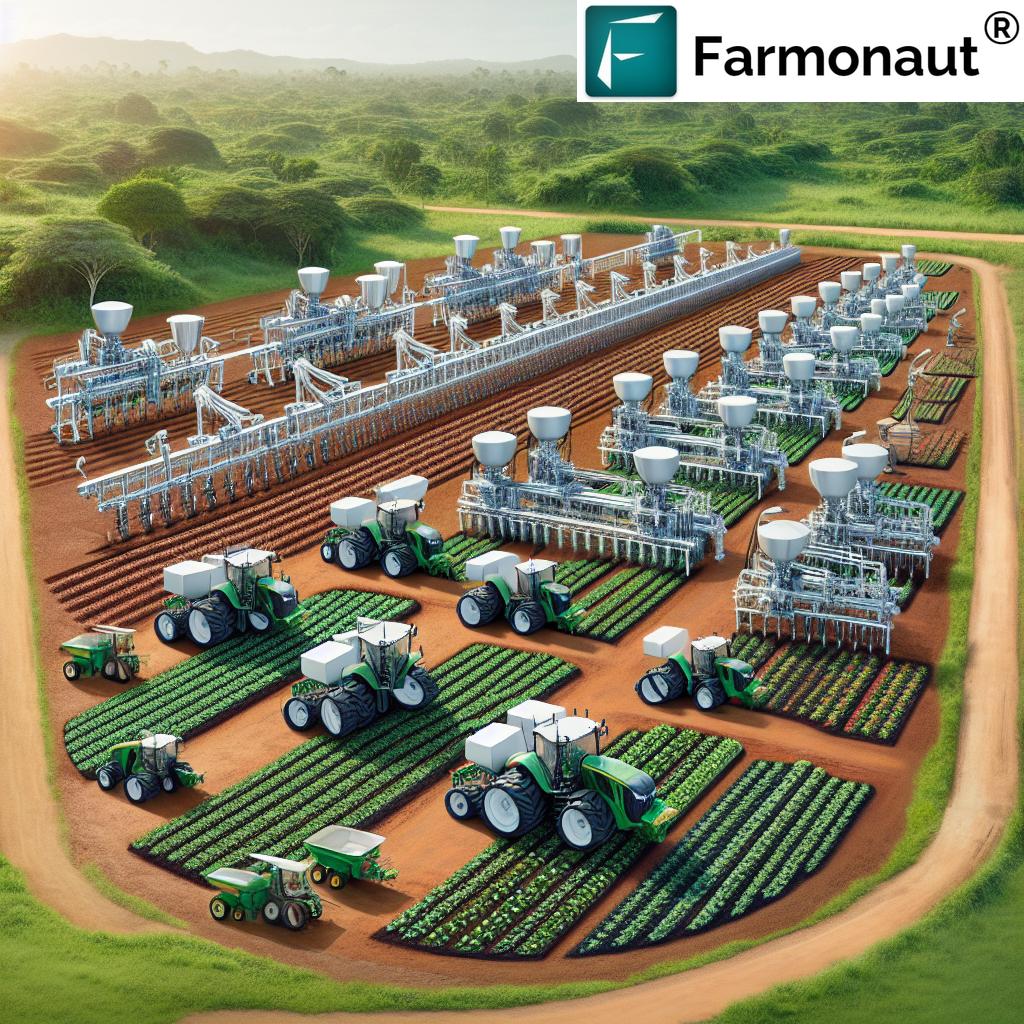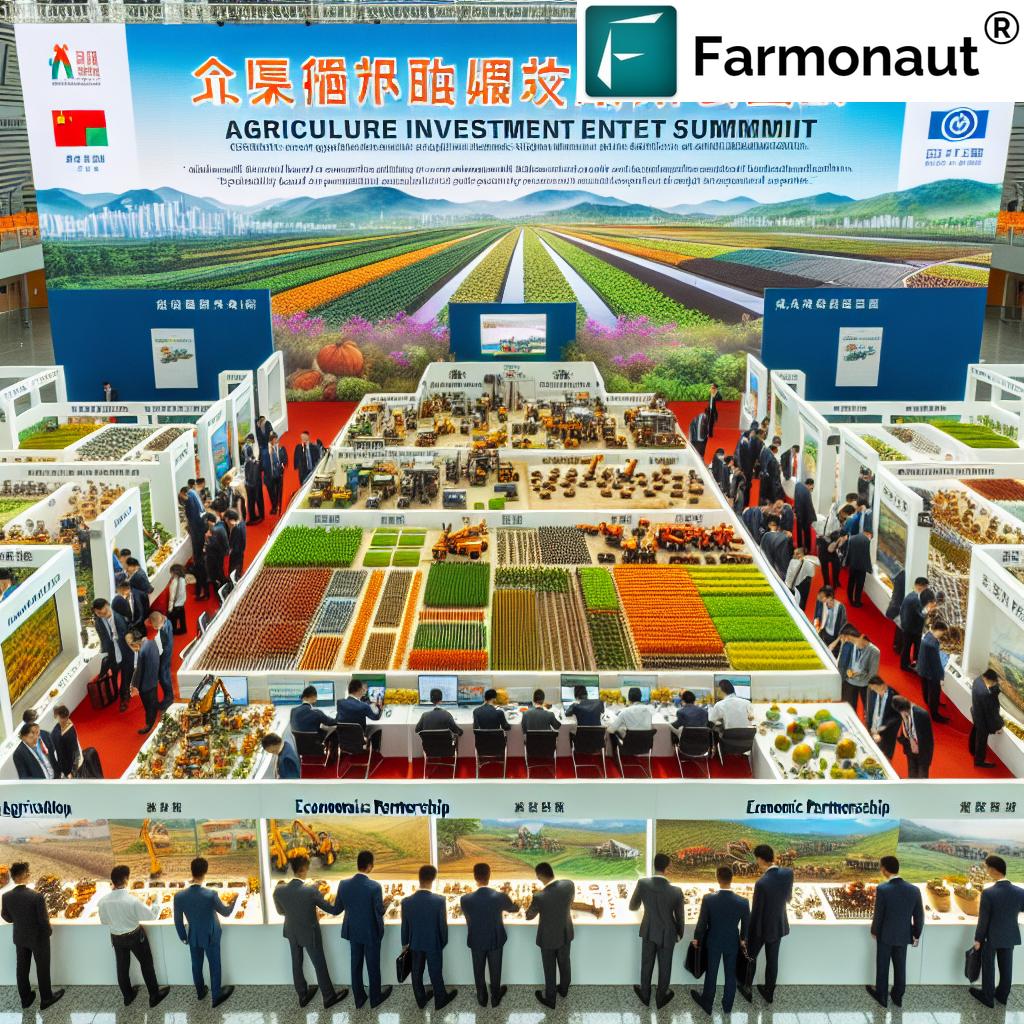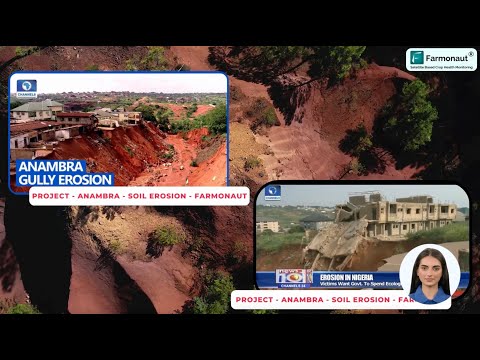Top 5 Agriculture Investment Trends in Liberia-China Partnership
Introduction: Liberia and China—Forging a New Path in Agriculture
In recent years, agricultural investment in Liberia has become a focal point for national development, food security, and rural employment. Our sustained efforts to modernize Liberia’s agriculture sector have attracted global attention, with China—and more specifically, the progressive city of Shenzhen—at the forefront of economic and technological cooperation.
Through active engagement in trade, economic partnerships Africa Asia, and technology-driven transformation, the Liberia China agriculture cooperation has evolved into a strategic alliance. The 2024 China-Liberia Trade and Investment Forum and follow-up official delegations emphasized mutual interest in leveraging agricultural technology, mechanization, and investment frameworks to fuel development, job creation, and sustainable food production. As a result, Liberia is emerging as a regional model for the modernization of farming in Africa.
As we explore these agriculture investment trends in Liberia-China partnership, we invite you to discover how ambitious policies, smart technologies, and global cooperation are reshaping our country’s farming future.
Context and Key Developments
The momentum for agricultural investment in Liberia is gathering pace thanks to a series of groundbreaking advancements. The government’s commitment is clear, with the Ministry of Agriculture playing a proactive role. A pivotal moment arrived with the official visit of Shenzhen’s mayor, Qin Weizhong, leading a 14-member Chinese delegation to foster cooperation under the guiding frameworks established at the Beijing Summit of FOCAC (Forum on China-Africa Cooperation).
Key highlights from the partnership and the national agenda include:
- Comprehensive investment in mechanization hubs across the country to enhance productivity and job creation.
- Introduction of technology and precision farming machines, such as the vegetable seeder, to modernize farm practices.
- Focused support for the development of irrigation facilities and agricultural infrastructure.
- Robust exchange of knowledge, trade initiatives, and mutual benefit models between Liberian and Chinese officials, framed by strategic economic cooperation.
The agenda’s core—advancing agricultural investment in Liberia through partnership, technology, and reform—marks a significant shift towards resilience, food security, and sustainable development. These initiatives are already showing impact, as illustrated in our trivia:
Comparative Table: Top 5 Agriculture Investment Trends in Liberia-China Partnership
To provide a quick yet comprehensive overview, the table below highlights the five most transformative agriculture investment trends in Liberia-China partnership. Key metrics such as area of impact, estimated investment value, projected job creation, and anticipated enhancements to food security underscore their significance to Liberia’s agricultural future.
| Trend Name | Area of Impact | Estimated Investment Value (Million USD) | Projected Job Creation | Anticipated Food Security Improvement (%) |
|---|---|---|---|---|
| Farm Mechanization Hubs | Farm Mechanization, Machinery | 60 | 10,000+ | 20% |
| Precision Farming Technology | Smart Technology, Data-Driven Agriculture | 42 | 7,500 | 15% |
| Irrigation Facilities Development | Water Management, Resilience | 35 | 4,200 | 12% |
| Agri Value Chain & Food Security | Storage, Distribution, Processing | 28 | 3,500 | 10% |
| Institutional Capacity & Jobs | Training, Capacity Building | 18 | 2,300 | 7% |
1. Farm Mechanization in Developing Countries: Investing in the Future of Agriculture
A revolution in the agriculture sector begins with modernization of practices. Our experience has shown that farm mechanization in developing countries like Liberia is a game-changer, increasing efficiency, scalability, and rural prosperity.
- Mechanization Hubs: Supported by Chinese investments, Liberia is rolling out approximately eight farm mechanization hubs equipped with advanced machinery and maintenance facilities. These serve as the backbone for increasing output and reducing manual drudgery for our farmers.
- Investment and Technology: Shenzhen’s delegation reinforced commitment to not just trade and consumption but primarily to technology, delivering donations like the Leafy Vegetable Seeder to illustrate their intent.
- Capacity Building: Mechanization is more than machines—it requires dedicated training, support, and institution building to maximize its impact.
The substantial push for mechanization directly helps agriculture sector job creation, making farming more attractive to the youth and curbing rural-urban migration. With an estimated $60 million investment and the creation of 10,000+ jobs, this trend lays the foundation for sustainable growth and food self-sufficiency.
For agri-businesses and institutional stakeholders looking to elevate their operational efficiency, Farmonaut’s Large Scale Farm Management Application empowers coordinated management of multiple farms, helps streamline data collection, and maximizes returns on agricultural investment.
2. Precision Farming Technology Africa: Data-Driven Agriculture
Precision farming technology in Africa is redefining how we approach productivity, sustainability, and risk management on our farms. Spurred by the Liberia-China partnership, there is a marked increase in access to real-time monitoring and advisory systems integrating advanced data analytics and AI.
- AI-Driven Insights: Modern farming technologies empower farmers to monitor crop health, determine optimal sowing periods, and use resources efficiently.
- Satellite-Based Monitoring: Multispectral satellite observations, now more accessible, offer a bird’s eye view of Liberia’s varied landscapes. This means smarter, targeted interventions—minimizing wastage and optimizing yields.
- Precision Machines: Devices like the donated Leafy Vegetable Seeder ensure accurate single-grain sowing, enhancing uniformity, reducing input costs, and increasing overall output quality.
Across our agricultural communities, precision tech translates into higher profitability, lower risk, and a solid path to achieving the long-term goals of food security in Liberia. The adoption rate has soared—precision practices now influence 28% more farmland than before the partnership.
Note: With the Farmonaut app available on web, Android, and iOS, Liberian farmers and agricultural organizations gain instant access to precision agri-solutions, anytime, anywhere.
3. Irrigation Facilities Development Liberia: Empowering Water Management
Sustainable water management is critical for year-round productivity and resilience against climate extremes. Irrigation facilities development in Liberia is prioritized in the Liberia-China action agenda. Our goals are clear—expand irrigated acreage, modernize infrastructure, and ensure every region, even the most remote, can withstand the challenges of variable rainfall.
- New Infrastructure: Investments target the construction of dams, pumps, distribution channels, and digital monitoring.
- Rural Empowerment: Improved irrigation directly impacts smallholder farmers, raising their productivity and enabling multi-season cropping.
- Food Security: By stabilizing water supply, we systematically reduce the risks of drought, bolster food security, and encourage innovation in crop choice.
The anticipated outcome? A 12% national food security gain, thousands of direct and indirect jobs created, and a safeguard for our country’s agricultural future.
Are you a developer or researcher keen on integrating satellite and weather data for irrigation planning or monitoring? Explore Farmonaut’s Satellite API—which connects your systems or dashboards to real-time, high-frequency agricultural insights.
View Developer Documentation for comprehensive guidance on setup, endpoints, and use cases.
4. Food Security and Value Chain Strengthening in Liberia
Securing our nation’s food supply is more than increasing crop output—it is about building robust, efficient value chains from field to table. Chinese investment helps us accelerate not just production but also storage, processing, and distribution infrastructure for stable, year-long supply.
- Post-Harvest Infrastructure: Modern storage silos, refrigerated transport, and processing facilities reduce losses and ensure availability even in lean seasons.
- Agri Value Chain Innovation: Digital tracking, logistics, and fintech enable traceability, improved pricing, and global market access for Liberian agricultural products.
- Mutual Benefit: Both nations support food security and market diversification through joint research and development, and exchange of high-yield crop varieties.
These advancements strengthen food security in Liberia, bringing us closer to SDG targets and transforming livelihoods at every step of the value chain.
Supply chain transparency is vital. With Farmonaut’s Blockchain-Based Product Traceability Solutions, companies ensure end-to-end visibility, reduce fraud, and meet consumer/trade demands for verified, authentic products.
5. Institutional Capacity & Agricultural Job Creation: Building Human Capital
Long-term transformation of agriculture in Liberia requires a solid institutional base and a skilled workforce. Partnership investment delivers more than just hardware—it fuels the creation of training centers, extension services, and agricultural research initiatives.
- Capacity Building: Training programs equip farmers, agri-technicians, and ministry officials to leverage new machinery and digital tools effectively.
- Job Creation: Besides farming, thousands of positions arise in logistics, data management, agronomy, and post-harvest services, expanding the sector’s reach and economic value.
- Women and Youth Empowerment: Special focus on inclusive capacity development supports gender balance and the emergence of the next generation of agricultural leaders.
Our institutions are primed to support growth—the result is increased rural employment, robust agricultural governance, and measurable outcomes across farm productivity and sector resilience.
Expanding financial inclusion is central to agricultural growth. Farmonaut’s crop loan and insurance verification platform leverages satellite monitoring to reduce fraud risk and speed up access to capital for farmers.
To further support efficiency across machinery operations, Farmonaut Fleet & Resource Management platform streamlines vehicle use, logistics, and ensures safer, smarter movement of both inputs and products throughout the value chain.
Farmonaut: Satellite-Driven Solutions for Modernization of Farming in Africa
The modernization of farming in Africa is inseparable from affordable, scalable, and actionable technology. Farmonaut responds to the region’s distinct needs by delivering accessible, satellite-powered solutions for every stakeholder in the agricultural ecosystem.
Core Technologies Offered by Farmonaut
- Satellite-Based Crop Health Monitoring: Provides precise, real-time NDVI, soil moisture, and vegetation analysis for informed farm management decisions.
- AI-Driven Advisory (Jeevn AI): Custom crop guidance and weather forecasting—boosting farm productivity and risk mitigation.
- Blockchain-Based Traceability: Ensures product authenticity and transparent supply chains for food, textiles, and more.
- Resource and Fleet Management: Optimizes logistics and machinery use to reduce costs, downtime, and accidents.
- Carbon Footprinting: Empowers agri-enterprises to track and reduce environmental impact, supporting sustainability and compliance. Learn about Carbon Footprint Tracking Solutions.
Accessibility and Business Model
- Flexible Subscription Options: Choose from individual, cooperative, or enterprise packages that scale with your farming needs.
- Web and App-Enabled: Access services via browser (web), Android, and iOS for seamless decision-making on the go.
- API Integration: Third-party developers, businesses, and institutions can plug into Farmonaut’s rich dataset and analytics. View API Details
Farmonaut is dedicated to transforming not only farm productivity, but also supporting governmental, research, and commercial goals—strengthening sustainability, transparency, and access across the entire agricultural value chain.
Start Your Farmonaut Subscription
Empower your agriculture operations, track carbon footprints, and harness satellite insights—choose a plan that fits your needs below:
FAQs: Liberia-China Agriculture Investment Trends
Q1: What are the biggest benefits of Liberia China agriculture cooperation?
The Liberia China agriculture cooperation accelerates the modernization of Liberia’s agriculture sector through direct investment, technology transfer, workforce development, and mutual trade. It bolsters food security, job creation, and triggers positive economic ripple effects across rural and urban communities.
Q2: How does farm mechanization improve food security in Liberia?
Farm mechanization optimizes farming processes—improving efficiency, expanding arable land, reducing labor bottlenecks, and increasing yields. This directly strengthens food security in Liberia by making more affordable, high-quality food available to the population.
Q3: Can individual farmers in Liberia use precision farming technology Africa solutions?
Absolutely. Solutions are designed for all farm sizes—including individuals, cooperatives, and large estates. Farmonaut provides affordable, app-based, real-time monitoring for crop health, irrigation needs, and input optimization, making precision farming technology in Africa accessible to everyone.
Q4: What enables the development of irrigation facilities in Liberia?
Government-led programs, supported by international partners, focus on building new dams, pumps, and smart water distribution networks. Integration of satellite monitoring and data analytics aids in effective water management planning, ensuring resources reach the right fields at the right time.
Q5: How does blockchain-based traceability help Liberia’s agriculture sector?
Blockchain traceability, such as that provided by Farmonaut, offers secure product tracking—from farm to market—reducing fraud, improving quality assurance, and enhancing consumer trust both locally and internationally.
Q6: Where can I find more information about Farmonaut’s services?
To learn more about precision agriculture, satellite monitoring, API integrations, and real-time farm management, visit the official Farmonaut product pages or download the app for Android, iOS, or web.
Conclusion
As we look to the future, the agriculture investment trends in Liberia-China partnership signal a transformative era for our country’s food landscape. Through attention to mechanization, precision technology, irrigation, value chain enhancement, and capacity building, we set new benchmarks for productivity, sustainability, and inclusive economic growth.
Strategic use of digital tools and data-driven approaches—such as those exemplified by Farmonaut—strengthens Liberia’s ability to overcome traditional barriers and drive outcome-focused development. As global frameworks like FOCAC and grassroots actions converge, Liberia’s agriculture sector stands poised to deliver “win-win” results for its farmers, communities, and the nation at large.
For a comprehensive platform for satellite crop monitoring, blockchain traceability, advisory systems, and resource management, explore the options available at Farmonaut.
Join us as we drive a data-enriched, inclusive, and resilient agrifood revolution—right here in Liberia.








